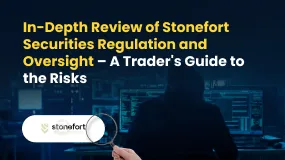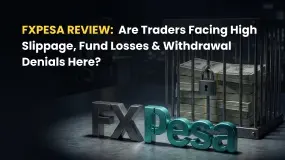简体中文
繁體中文
English
Pусский
日本語
ภาษาไทย
Tiếng Việt
Bahasa Indonesia
Español
हिन्दी
Filippiiniläinen
Français
Deutsch
Português
Türkçe
한국어
العربية
Swiss National Bank shifts focus to inflation after doubling forecast
Abstract:The Swiss National Bank kept its ultra-expansive monetary policy on hold on Thursday, bucking the trend of other central banks which have started hiking interest rates to tackle rising inflation.

The Swiss National Bank will take “all necessary measures” to tackle higher prices in Switzerland, SNB Chairman Thomas Jordan said on Thursday, indicating a shift in tone at the central bank that for years has battled to tame the strong Swiss franc.
The SNB doubled its inflation forecast for this year, citing higher energy costs, production bottlenecks and the Ukraine war.
It now sees 2022 inflation at 2.1%, lower than in many countries but still exceeding its target for limiting annual price increases to 0-2%.
Unlike the U.S. Federal Reserve and the Bank of England, the SNB held off hiking interest rates, sticking with the worlds lowest interest rate of minus 0.75% as expected.
Certainly, Switzerlands relatively tame inflation rate gives the SNB some flexibility.
Still, Jordan said the central bank was determined to control inflation, indicating potential readiness to shift from the ultra-expansive monetary course pursued over the last seven years.
“We are not at all powerless, we look at these inflation forecasts and we will take all necessary measures in order to maintain price stability over the medium to long term,” Jordan told journalists.
The SNB steers monetary conditions via the francs exchange rate and interest rates, and would adjust tools if necessary, he added.
The franc strengthened versus the euro after the SNBs announcement, with the EUR/CHF exchange rate reaching 1.0213 at one point, its highest valuation since March 14.
We are in the business of that for a very long time and if necessary we have to adjust those monetary conditions so inflation remains or returns to the range of price stability.
“We also have to look we do not fall into a situation where we have the opposite problem where inflation becomes too low.”
The franc strengthened as the market interpreted the SNB‘s comments to mean the bank could cope with the currency’s current strength, indicating it may intervene less in future to weaken the currency.
Economists said the higher inflation forecasts and Jordans comments indicated a more flexible approach at the SNB.
“Jordans comments … carry a hint of hawkishness and seems to me to be preparing the grounds for days when the SNB no longer maintains the status quo as a matter of course,” said David Oxley at Capital Economics.
“The end of its prolonged period of policy stasis is drawing closer.”
With the SNB forecasting inflation of 0.9% in both 2023 and 2024, the central bank also had to prevent the country falling into deflation, said Karsten Junius, an economist at J.Safra Sarasin.
“The SNB has to monitor risks to its definition of price stability on both sides,” Junius said. “It therefore has to indicate that it stands ready to adjust its policy in both directions.”
While keeping policy unchanged, the SNB retained its description of the franc as “highly valued”, despite the currency recently hitting its highest level against the euro in seven years.
Jordan said the SNB did not have a particular “pain threshold” for the franc‘s valuation, which was being driven by higher inflation abroad as well as the franc’s safe-haven status.
The francs strength also helps Switzerland overcome rising inflation by making imports cheaper, he said.
Many analysts expect the SNB to wait for the European Central Bank to raise rates before starting its own round of hikes, although Jordan stressed Switzerlands independence.
“We never wait for another central bank, we make monetary policy with the goal of maintaining price stability,” he said.

Disclaimer:
The views in this article only represent the author's personal views, and do not constitute investment advice on this platform. This platform does not guarantee the accuracy, completeness and timeliness of the information in the article, and will not be liable for any loss caused by the use of or reliance on the information in the article.
Read more

In-Depth Uniglobe Markets Commission Fees and Spreads Analysis – What Traders Should Really Know
For experienced traders, the cost of execution is a critical factor in broker selection. Low spreads, fair commissions, and transparent pricing can be the difference between a profitable and a losing strategy over the long term. This has led many to scrutinize the offerings of brokers like Uniglobe Markets, which presents a tiered account structure promising competitive conditions. However, a professional evaluation demands more than a surface-level look at marketing claims. It requires a deep, data-driven analysis of the real trading costs, set against the backdrop of the broker's operational integrity and safety. This comprehensive Uniglobe Markets commission fees and spreads analysis will deconstruct the broker's pricing model, examining its account types, typical spreads, commission policies, and potential ancillary costs. Using data primarily sourced from the global broker inquiry platform WikiFX, we will provide a clear-eyed view of the Uniglobe Markets spreads commissions prici

In-Depth Review of Stonefort Securities Regulation and Oversight – A Trader's Guide to the Risks
For experienced traders, the process of selecting a new broker transcends a simple comparison of spreads and leverage. It is a meticulous due diligence exercise where the integrity of the broker's regulatory framework is paramount. Stonefort Securities, a relatively new entrant in the crowded brokerage space, presents a complex and often contradictory profile. On one hand, it boasts a modern MT5 platform and a stream of positive user testimonials. On the other hand, it is shadowed by severe regulatory warnings that question the very foundation of its operations. This in-depth review focuses on the core issue for any long-term trader: Stonefort Securities regulation and oversight. We will dissect the broker's corporate structure, scrutinize its licensing claims, and analyze what the data implies for trader protection and fund security. For traders evaluating whether Stonefort Securities is a trustworthy partner, understanding these details is not just important—it is essential.

FXPesa Review: Are Traders Facing High Slippage, Fund Losses & Withdrawal Denials?
Do FXPesa support officials fail to pick up your calls when you raise fund withdrawal requests with the broker? But are these officials always open to you regarding fund deposits? Do you frequently spot slippage and stop-loss order execution errors on the FXPesa login? These issues are increasingly becoming common with this forex broker. Consequently, many traders have expressed their dissatisfaction with the broker online. In this FXPesa Review article, we have shared some of these complaints. Take a look!

Seaprimecapitals Withdrawal Problems: A Complete Guide to Risks and User Experiences
Worries about Seaprimecapitals withdrawal problems and possible Seaprimecapitals withdrawal delay are important for any trader. Being able to get your money quickly and reliably is the foundation of trust between a trader and their broker. When questions come up about this basic process, it's important to look into what's causing them. This guide will tackle these concerns head-on, giving you a clear, fact-based look at Seaprimecapitals' withdrawal processes, user experiences, and trading conditions. Most importantly, we'll connect these real-world issues to the single most important factor behind them: whether the broker is properly regulated. Understanding this connection is key to figuring out the real risk to your capital and making a smart decision.
WikiFX Broker
Latest News
In-Depth Uniglobe Markets Commission Fees and Spreads Analysis – What Traders Should Really Know
WikiFX's New Evaluation of ATM Capital LTD: Does its License Protect the Arab Investor?
Is Axi Legit? A Data-Driven Analysis of Its Regulatory Standing and Trader Feedback
How a Fake Moomoo Ad Led to the “New Dream Voyage 5” Scam
FXPesa Review: Are Traders Facing High Slippage, Fund Losses & Withdrawal Denials?
Trive Investigation: High Score, Hidden Risk - The Profit Paradox
Bessent believes there won't be a recession in 2026 but says some sectors are challenged
Is GGCC Legit? A Data-Driven Analysis for Experienced Traders
Young Singaporean Trader Grew USD 52 into a USD 107,700 Portfolio
mBank Exposed: Top Reasons Why Customers are Giving Thumbs Down to This Bank
Currency Calculator



